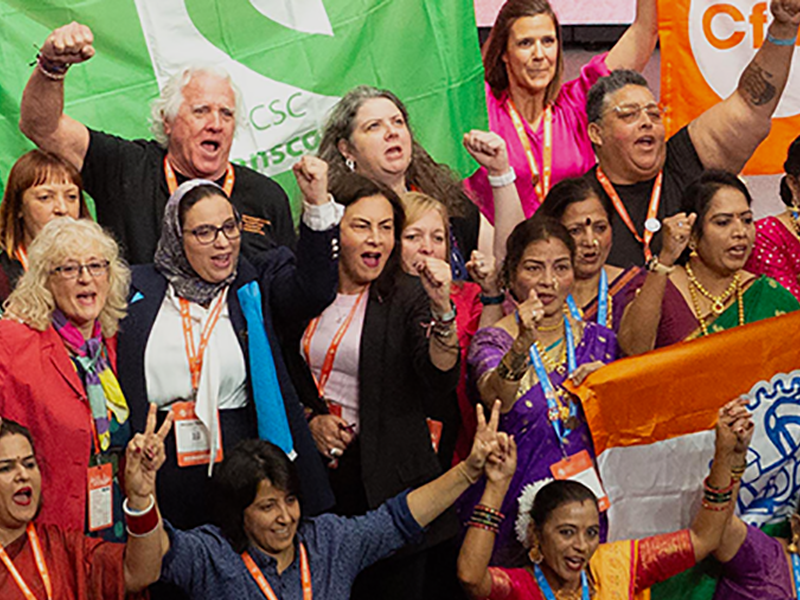A new report by human rights, labour and environmental organisations has exposed the latest attempt by employers to satisfy consumer concerns on the welfare of fishers and seafood workers while taking minimal action to stop abuse and exploitation in high seas fisheries.
The FISH Standard is supposed to provide ‘a voluntary, independent and accredited third-party certification program for labour practices on vessels in wild-capture fisheries around the globe’, but critics from the Seafood Working Group (SWG) watchdog say the ‘standard’ “will fail to achieve its stated objective” due to a lack of a meaningful voice for workers, compounded by a lack of auditing and enforcement mechanisms.
“We support the findings of the Seafood Working Group that this new FISH Standard will have only a minimal impact in stopping abuse and exploitation in the global fisheries industry,” said Rossen Karavatchev, coordinator of the International Transport Workers’ Federation (ITF) Fisheries Section.
“Certifications developed by employers or corporations —in this case seafood processors— often miss the mark because they are primarily concerned with their own image and making the industry appear better than it really is in an effort to keep consumers buying their products guilt-free, rather than improving actual working conditions.”
“But without ways for workers and their unions to independently audit and report on the conditions on trawlers and other industrial fishing vessels – the FISH standard is nothing but a whitewash, a useless label which does not translate into better working conditions.”
Karavatchev said the ITF was advising seafood brands and retailers against using the FISH Standard for Crew as guide for buying ethical fish and seafood products. He said it was essential for wholesale buyers and everyday consumers to reject voluntary, meaningless certifications like FISH.
“Trusting seafood and fisheries corporations draw up their own toothless standards is like asking the fox to watch the henhouse. It is ridiculous to think that companies can effectively police themselves voluntarily and guarantee that the rights of workers in their supply chains are not violated,” said Karavatchev.
Empower fisheries workers to speak up - ITF
ITF Fisheries Section chair Johnny Hansen said that the only way that consumers could be sure that workers’ rights were being respected in a supply chain was by buying products compliant with standards which recognised independent trade unions.
“The fact is that workers having, and being part of, independent trade unions is the only way companies can be held accountable for their treatment of fishers. If workers have strong unions, they can blow the whistle on abuses they see towards crew, help stop human trafficking and forced labour, or raise other concerns they see in supply chains such as illegal trawling and environmental dumping.”
“Without strong unions, fishers are often frightened of the consequences of speaking out – especially if they have been trafficked or employers are holding their passports, which is alarmingly common in high seas industrial fisheries.”
Hansen said seafood brands and retailers should adopt worker-centered, worker-driven models of labour participation, monitoring and remediation, instead of voluntary corporate certifications like FISH.
“We need to see consumers and governments demanding that global seafood supply chains have binding and enforceable collective agreements with fishers’ and food processing workers’ unions.”
“The best friend an ethical consumer can have is a unionised worker with a collective agreement empowered to speak up when things are not right. That’s how we end exploitation in fishing,” said Hansen.
END
Notes:
About the ITF: The International Transport Workers’ Federation (ITF) is a democratic, affiliate-led federation recognised as the world’s leading transport authority. We fight passionately to improve working lives; connecting trade unions from 147 countries to secure rights, equality and justice for their members. We are the voice for nearly 20 million working women and men in the transport industry across the world.



